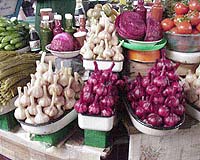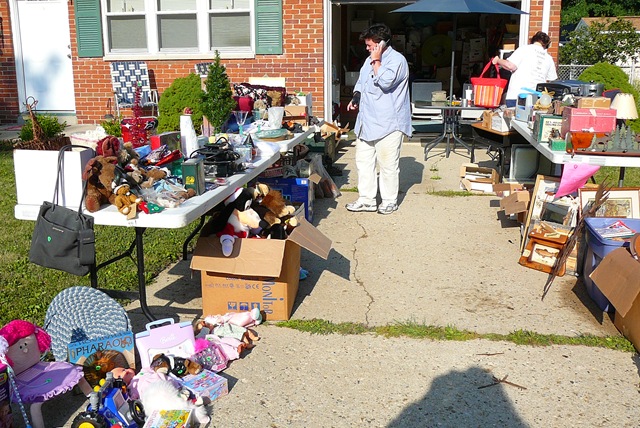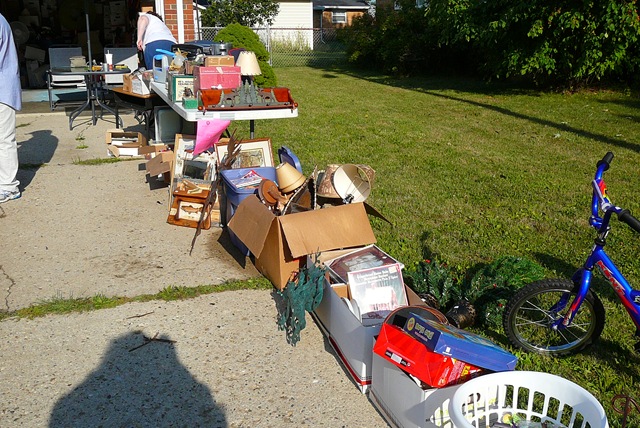 Wastewater is most commonly used to produce vegetables and cereals (especially rice), according to this and other IWMI reports, raising concerns about health risks for consumers, particularly of vegetables that are consumed uncooked. |
Stockholm, Sweden (SPX) Aug 18, 2008
As developing countries confront the first global food crisis since the 1970s as well as unprecedented water scarcity, a new 53-city survey conducted by the International Water Management Institute (IWMI) indicates that most of those studied (80 percent) are using untreated or partially treated wastewater for agriculture.
In over 70 percent of the cities studied, more than half of urban agricultural land is irrigated with wastewater that is either raw or diluted in streams.
The conclusions of the study, released at 2008 World Water Week in Stockholm, are based on data gathered from a diverse sample of developing country cities, chosen on the basis of factors such as water scarcity and income levels.
Local experts selected by an independent panel completed survey questionnaires, drawing on secondary data as well as interviews with local water management experts and detailed country studies.
"Irrigating with wastewater isn't a rare practice limited to a few of the poorest countries," said IWMI researcher Liqa Raschid-Sally and lead author of a report on survey results.
"It's a widespread phenomenon, occurring on 20 million hectares across the developing world, especially in Asian countries, like China, India and Vietnam, but also around nearly every city of sub-Saharan Africa and in many Latin American cities as well." Wastewater is most commonly used to produce vegetables and cereals (especially rice), according to this and other IWMI reports, raising concerns about health risks for consumers, particularly of vegetables that are consumed uncooked.
But at the same time, wastewater agriculture contributes importantly to urban food supplies and helps provide a livelihood for the urban poor, especially women, and recent migrants from the countryside.
"The negative and positive implications of wastewater agriculture have only recently received attention," noted Colin Chartres, director general of IWMI, which is supported by the Consultative Group on International Agricultural Research (CGIAR).
"This study offers the first comprehensive, cross-country analysis of the conditions that account for the practice and the difficult tradeoffs that arise from it."
Accra, Ghana's capital city (with an urban population of nearly 2 million), illustrates those tradeoffs particularly well. An estimated 200,000 of the city's inhabitants daily purchase vegetables produced on just 100 hectares of urban agricultural land irrigated with wastewater, says the IWMI report.
"That gives you an idea," remarked Raschid-Sally, "of the large potential of wastewater agriculture for both helping and hurting great numbers of urban consumers."
"And it isn't just affluent consumers of exotic vegetables whose welfare is at stake," she added. "Poor consumers of inexpensive street food also depend on urban agriculture." Moreover, in Asia, rice-based farming systems, irrigated mainly with wastewater, figure importantly in urban food production, Raschid-Sally explained.
Across regions, poor women benefit most from farming within and around urban areas, according to survey results. They play especially prominent roles in certain cities of Africa, Central Asia and Latin America, accounting for more than 70 percent of urban farmers. In many cities, they also dominate the wholesale and retail sale of vegetables, often making more money than their farming husbands.
Survey results on the forces driving wastewater use in urban agriculture suggest that it is not only widespread but practically inevitable.
As long as developing countries lack suitable transport for delivering large quantities of perishable produce to urban areas, vegetable production in urban agriculture will remain important. And in the face of water scarcity generally and a lack of access to clean water, urban farmers will have no alternative except to use diluted or untreated wastewater or polluted river water.
Consumers across the 53 cities said they would prefer to avoid wastewater produce. But most of the time, they have no way of knowing the origin of the products they buy.
Farmers too are aware that irrigating with wastewater may pose health risks both for themselves and the consumers of their produce, but they simply have little choice, since safe groundwater is seldom an accessible alternative, according to the IWMI report.
Few developing countries reported having official guidelines for the use of wastewater in agriculture. And even if they do, monitoring and enforcement rarely happen and may not be realistic, especially where irrigation with polluted water occurs on a large scale. As a result, though the practice may be theoretically forbidden or controlled, it is in fact "unofficially tolerated."
Under those conditions, the report asserts, extreme measures, like banning the use of polluted water, or even stricter water quality guidelines are of no avail. In fact, they could adversely affect urban consumers, farmers and others who depend on urban agriculture.
The report praises new guidelines established by the World Health Organization (WHO), which replace often unachievable water quality thresholds with more realistic health-based targets. As a result, countries lacking the means to treat wastewater adequately can still reduce health risks through low-cost interventions, such as the use of drip irrigation and correct washing of fresh produce.
Current sanitation methods, though often inadequate, still offer entry points for introducing strategies to reduce health risks, according to the IWMI report.
Another option is to build on a wide range of innovative indigenous practices that can greatly reduce the health risks from wastewater agriculture. In Indonesia, Nepal, Ghana and Vietnam, for example, farmers store wastewater in ponds to allow suspended solids to settle out. Inadvertently, this practice also permits worm eggs to settle out, possibly reducing bacteria in the water.
In Ouagadougou, Burkina Faso, farmers using water from a brewery build storage basins for wastewater and fill them only when they judge the quality of the wastewater to be acceptable (that is, not acidic), based on its appearance, odor and even taste.
"A key aim of IWMI research is to find feasible approaches whereby wastewater irrigation can continue strengthening food security and generating economic benefits but without major health risks for urban consumers and farmers," said Chartres.


